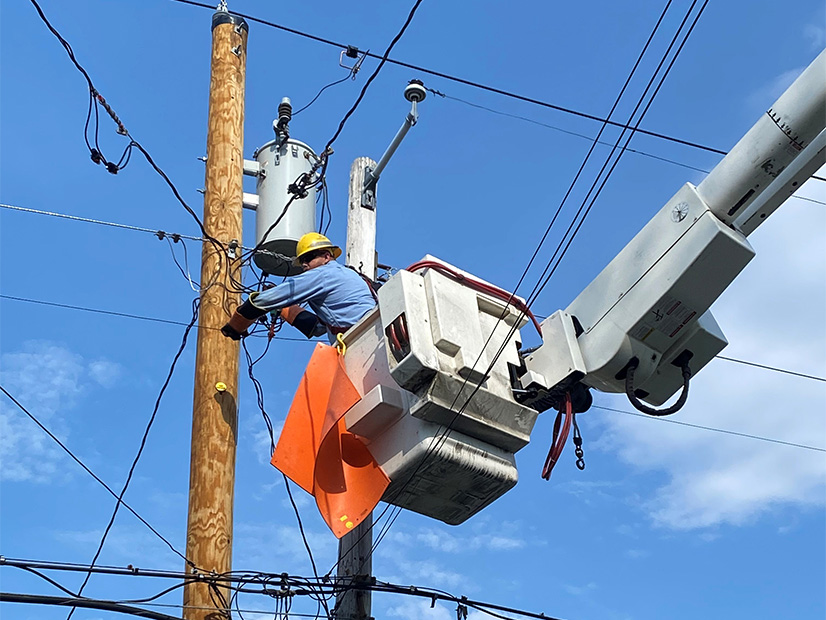
Maine Gov. Janet Mills introduced a bill Wednesday that opens a new chapter in a long-standing effort to hold the state’s investor-owned utilities accountable for reliable and affordable electric service.
Bill Harwood, Maine’s newly appointed public advocate, applauded Mills for introducing the bill, saying in a statement that it will fill in “glaring gaps” in the state’s regulation of its utilities.
The Act to Ensure Transmission and Distribution Utility Accountability (LD 1959) would direct the Maine Public Utilities Commission to establish a performance report card for the state’s T&D utilities, with the possibility of imposing fines for not complying with performance standards. If a utility “consistently fails” to meet those standards, the commission would decide whether to sell off the utility’s assets, according to the bill.
If the commission were to move forward with divestiture, it would consider bids from potential buyers along with a proposal from a state-appointed committee to create a consumer-owned utility to purchase the assets.
Last July, Mills vetoed a similar bill, the Act to Create Pine Tree Power Authority (LD 1708), saying in her veto message that while the concept was sound, the bill was “hastily drafted.” (See Mills Tells Maine Legislature to Slow Down on Plan to Replace IOUs.)
The bill would have set reliability, cost and customer service metrics for the commission to determine whether the state’s two IOUs, Central Maine Power and Versant Power, are “fit to serve” Maine ratepayers. It also would have authorized the creation of a consumer-owned nonprofit, called Pine Tree Power, to purchase a utility’s assets, should it be found unfit.
CMP is owned by Spain-based Iberdrola via Avangrid (NYSE: AGR), while Versant is a subsidiary of Calgary, Canada-based ENMAX.
Our Power, a nonprofit supporting the creation of Pine Tree Power, began a citizen initiative in August to force a public vote on LD 1708. The group has collected 73% of the 60,000 signatures needed for the initiative, Stephanie Clifford, campaign manager for Our Power, said in a Jan. 19 statement.
To make the November 2022 ballot, all signatures were due Jan. 31, but the group said it will continue collecting signatures throughout this year for the 2023 ballot.
Our Power opposes the governor’s new bill for not aligning with the group’s goals, Wayne Jortner, former senior counsel for the Maine Public Advocate and lead petitioner for the ballot initiative, said in a Feb. 3 statement.
“We know all Mainers share our goals: thriving democracy, economic competition, a livable planet, and safe and affordable energy infrastructure,” Jortner said. “That is why our ballot question is built on those principles.”
The governor’s bill now goes to the Joint Energy, Utilities and Technology (EUT) Committee.
Rep. Nicole Grohoski (D), a member of the EUT Committee, does not believe the governor’s bill can provide relief for current high energy costs the way LD 1708 would. Grohoski co-sponsored LD 1708 and is a co-petitioner of the Our Power initiative.
“Maine people work hard for their money, while CMP’s and Versant’s far-off investors sit back in their cushy chairs siphoning off as much as they can get away with,” she said in a statement. Our Power’s referendum “frees us from this abusive relationship and offers net savings of $9 billion … with lower bills starting for us all on Day One.”
Mills received support for her proposal from a bipartisan group of EUT Committee members.
EUT Committee Chair Sen. Mark Lawrence (D) said he is “pleased” to work with the governor and committee members to move the legislation forward.


